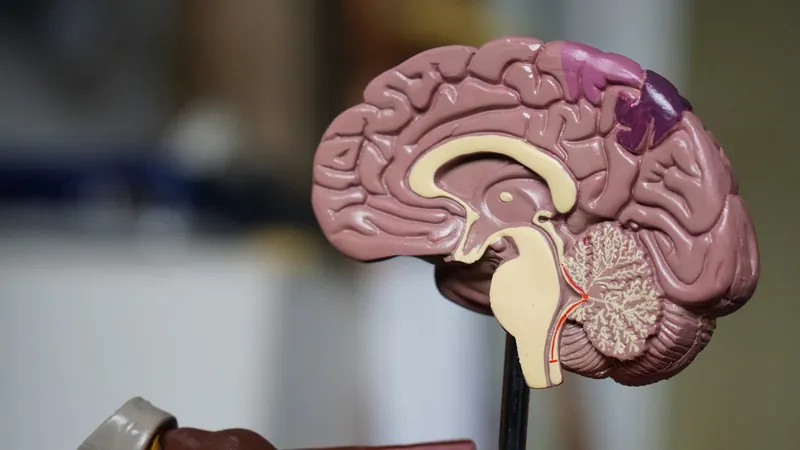
Can AI Revolutionize Brain Aneurysm Predictions? New Review Sheds Light on Promising Research!
2024-11-25
Author: Siti
Groundbreaking Study and Collaboration
A groundbreaking study conducted by researchers from King's College London, in collaboration with experts from Imperial College London, is investigating the potential of artificial intelligence (AI) in predicting which brain aneurysms might rupture—a serious medical condition requiring immediate intervention.
Impact of Brain Aneurysms
Brain aneurysms, characterized as bulging blood vessels in the brain, impact about 3.2% of the global population. While a smaller percentage will actually rupture, determining the best course of action for treatment is a complicated process due to the risks associated with surgical procedures.
Systematic Review Findings
In a recent systematic review published in the journal Clinical Neuroradiology, researchers evaluated 20 studies encompassing over 20,000 cases to assess how effectively AI models can predict the risk of aneurysm rupture. The findings were encouraging, with AI demonstrating accuracy rates ranging from 66% to 90%, which is on par with, if not slightly better than, traditional assessment methods such as the PHASES scoring system.
Variability and Future Research Needs
Despite these promising results, the review highlights significant variability among the studies, indicating that further investigation is essential before AI can be deemed ready for clinical application. Dr. Thomas Booth, Clinical Reader in Neuroimaging at the School of Biomedical Engineering & Imaging Sciences, remarked, “AI models show potential in automating and improving predictions, but they aren't ready for clinical use yet.”
Current Approaches and AI's Promise
Moreover, while the current approach relies on evaluating factors such as aneurysm size, location, and patient demographics, existing scoring systems can sometimes fail. For instance, small aneurysms may rupture unexpectedly, while larger ones might remain stable throughout a patient's life. AI offers the promise of enhancing predictive accuracy by analyzing extensive datasets and providing tailored predictions for individual patients.
Significance of Research
Dr. Karan Daga, a Radiology Registrar at the Imperial College NHS Trust, further emphasized the significance of this research: “This research is a step forward towards accurately predicting the outcomes of intracranial aneurysms, which can otherwise be extremely challenging. Machine learning is a potent tool capable of rapidly processing diverse and complex factors to assist both patients and clinicians in managing these potentially life-threatening conditions.”
Future Implications
The authors of the review stress the need for more extensive and diverse studies that evaluate AI models in real-world clinical environments. If successful, this innovative technology could transform care for patients with brain aneurysms by refining decision-making processes regarding whether to monitor or treat them. This advancement could significantly decrease unnecessary interventions and ensure that high-risk patients receive timely and appropriate care, potentially saving countless lives.
Conclusion
Stay tuned for more updates on this vital research that could change the landscape of neurovascular medicine forever!

 Brasil (PT)
Brasil (PT)
 Canada (EN)
Canada (EN)
 Chile (ES)
Chile (ES)
 España (ES)
España (ES)
 France (FR)
France (FR)
 Hong Kong (EN)
Hong Kong (EN)
 Italia (IT)
Italia (IT)
 日本 (JA)
日本 (JA)
 Magyarország (HU)
Magyarország (HU)
 Norge (NO)
Norge (NO)
 Polska (PL)
Polska (PL)
 Schweiz (DE)
Schweiz (DE)
 Singapore (EN)
Singapore (EN)
 Sverige (SV)
Sverige (SV)
 Suomi (FI)
Suomi (FI)
 Türkiye (TR)
Türkiye (TR)